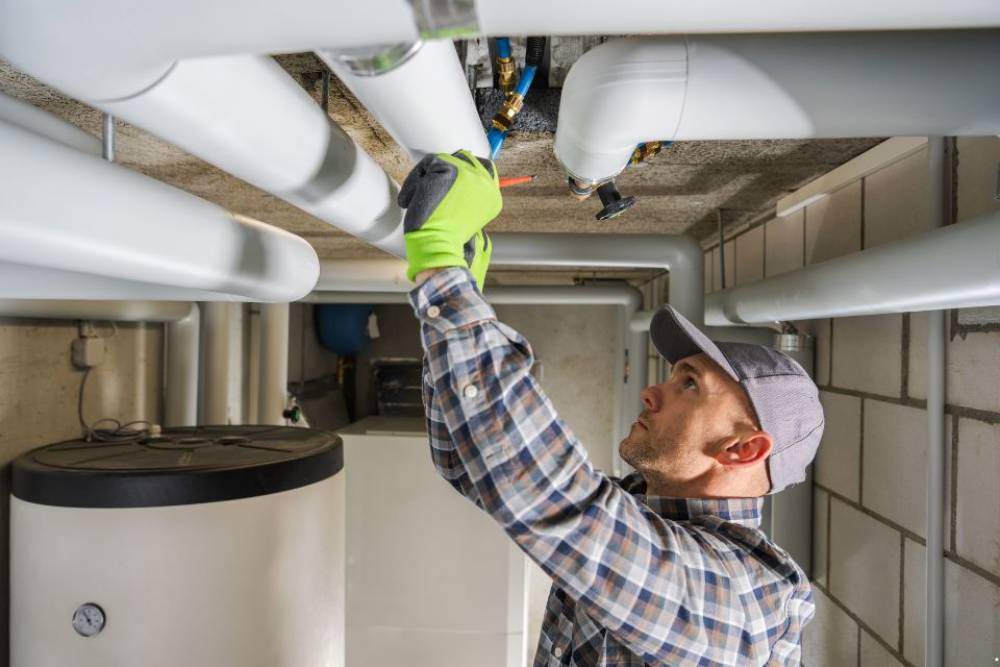
The Role Of HVAC Contractors In Preventing Carbon Monoxide Leaks
Carbon monoxide (CO) leaks pose significant risks to health and safety, often going undetected until severe symptoms occur. These leaks are often the result of malfunctioning or improperly maintained HVAC systems, particularly heating equipment. HVAC contractors play a vital role in ensuring that heating, ventilation, and air conditioning systems are efficient and safe. Routine maintenance, inspections, and necessary repairs help prevent carbon monoxide leaks and safeguard households. We will explore how HVAC contractors in Columbia TN contribute to CO leak prevention, highlighting their critical responsibilities in protecting homes and businesses from this silent, dangerous gas.
Routine Inspections and Maintenance to Prevent Leaks
HVAC systems require consistent inspections to ensure their components work efficiently and safely. Over time, heating systems such as furnaces or boilers can develop cracks in their heat exchangers, which may allow carbon monoxide to escape into indoor air. Contractors regularly inspect these heat exchangers, checking for signs of wear, rust, or structural failure. Beyond the heat exchangers, they also evaluate ventilation systems, ensuring proper airflow and clearing any obstructions that could trap or redirect dangerous gases. These proactive checks are necessary for homeowners to unknowingly expose themselves to carbon monoxide, as the gas is both odorless and invisible.
Routine maintenance tasks like cleaning burners, replacing worn-out filters, and calibrating systems further prevent carbon monoxide buildup. HVAC contractors ensure that burners are combusting fuel properly, as incomplete combustion is a leading cause of CO production. Additionally, filters must remain clean to allow smooth airflow, preventing systems from overworking or malfunctioning. Contractors also verify that exhaust systems effectively channel gases outside, preventing leaks into living spaces. This combination of thorough inspections and routine upkeep is essential to minimizing carbon monoxide risks while optimizing the performance and safety of heating systems.
Proper Installation of HVAC Systems
The installation of heating and ventilation systems must meet strict safety guidelines to ensure proper operation and reduce the risk of carbon monoxide leaks. Improperly installed furnaces, water heaters, or gas appliances can result in incomplete combustion, poor ventilation, and dangerous gas buildup. HVAC contractors are trained to follow manufacturer guidelines and industry safety standards when installing HVAC equipment. They ensure ventilation ducts, flue pipes, and chimneys are sealed, clear of obstructions, and correctly positioned to vent harmful gases outside the building. These measures are necessary for even new systems to pose a threat to indoor air quality.
Contractors also test newly installed systems to confirm they operate efficiently and safely. They use tools such as combustion analyzers to measure exhaust gases and identify any abnormalities in CO emissions. Additionally, they ensure proper spacing between HVAC equipment and walls or other structures, preventing heat buildup that can compromise system performance. These precautions are especially important in modern, tightly sealed homes where inadequate ventilation can exacerbate CO risks. By prioritizing safe installation practices, HVAC contractors create an environment where carbon monoxide leaks are far less likely.
Identifying and Repairing Faulty Equipment
HVAC contractors are adept at identifying and repairing faulty equipment that could contribute to carbon monoxide leaks. Aging systems, for instance, are prone to wear and tear, particularly in key components like burners, heat exchangers, and flue pipes. Contractors carefully inspect these parts for damage and recommend timely repairs or replacements when necessary. For example, a cracked heat exchanger is a common source of CO leaks, and ignoring this issue can have serious consequences for household safety. HVAC contractors act quickly to address such problems, preventing harmful gases from entering the living space.
Another critical focus is ensuring proper ventilation in HVAC systems. Over time, flue pipes and vents can become blocked with debris, bird nests, or accumulated soot, preventing CO from being safely vented outdoors. Contractors clear these obstructions and ensure that airflow is unobstructed. They also test systems to identify any air pressure imbalances that might cause exhaust gases to backdraft into the home. Repairing these issues promptly reduces the risk of carbon monoxide poisoning and improves overall system efficiency. With their attention to detail and commitment to safety, HVAC contractors provide invaluable protection against faulty equipment that could otherwise cause harm.
Educating Homeowners About Carbon Monoxide Safety
In addition to maintaining and repairing HVAC systems, contractors play a key role in educating homeowners about carbon monoxide safety. Many people are unaware of the potential risks posed by their heating systems or the symptoms of CO poisoning, such as headaches, dizziness, or nausea. HVAC contractors take the time to explain how carbon monoxide leaks occur, what to watch for, and how regular maintenance helps prevent dangerous situations. They also emphasize the importance of installing carbon monoxide detectors throughout the home to provide an early warning in case of leaks.
Educating homeowners extends to promoting safe practices when using fuel-burning appliances. For instance, HVAC contractors advise against blocking air vents or using heating systems in ways that exceed their intended capacity. They also caution against using gas stoves or portable heaters as primary heat sources, which can contribute to CO buildup. Through education, homeowners better understand the steps they can take to keep their families safe. By partnering with HVAC contractors and following their guidance, they can significantly reduce the risk of carbon monoxide exposure. This proactive approach empowers homeowners to play a role in maintaining a safe indoor environment.
Carbon monoxide leaks remain a significant safety concern, particularly in homes and businesses reliant on HVAC systems. HVAC contractors are critical in preventing these leaks through routine maintenance, proper system installation, timely repairs, and homeowner education. Their efforts ensure that heating systems are safe, efficient, and free from potential hazards like faulty heat exchangers or blocked ventilation. HVAC contractors provide an essential service that safeguards lives by performing safety tests, identifying problems, and educating homeowners about carbon monoxide risks. Proactive measures combined with professional oversight ensure that households can enjoy reliable heating systems without the hidden danger of carbon monoxide leaks.

